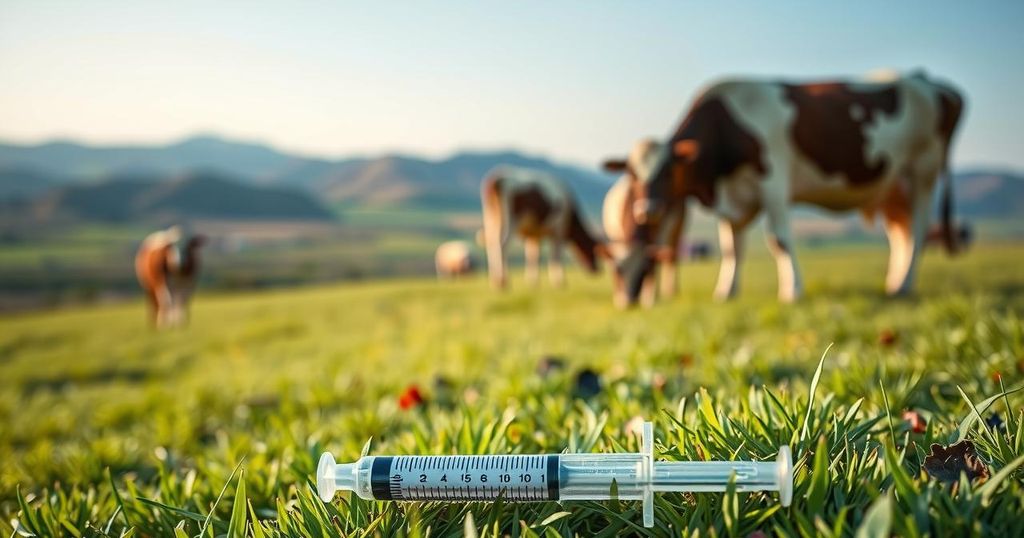Kenya plans to vaccinate livestock against diseases but faces opposition driven by misinformation linking the initiative to Bill Gates. Many farmers resist due to concerns about safety and foreign intervention, reflecting a broader distrust in government communication. The success of the vaccination program hinges on reassuring farmers and ensuring transparency.
The Kenyan government is set to launch a vaccination program for livestock, intending to vaccinate over 22 million cattle and 50 million goats and sheep to combat diseases such as foot-and-mouth disease. However, this initiative faces backlash from farmers fueled by misinformation surrounding the involvement of Bill Gates, allegedly funding the program. Despite assurances from officials that Gates is not involved, conspiracy theories proliferate, particularly on social media, complicating the public perception of the vaccination drive.
Opposition leaders and influential farmers voice concerns about the vaccines, suggesting they may alter livestock genetics and link them to foreign agendas. President William Ruto has condemned these views as misguided, yet the government’s recent history of low trust—stemming from tax increases and corruption scandals—contributes to public skepticism. Furthermore, many farmers are hesitant to proceed with vaccinations without greater transparency regarding their purpose and effectiveness.
The vaccination initiative in Kenya coincides with rising concerns about livestock diseases that threaten export opportunities, as only 10% of cattle are currently vaccinated. Methane emissions from livestock, chiefly caused by their digestive processes, also contribute significantly to global greenhouse gas emissions. The program aims not only to improve livestock health but also to enhance the competitiveness of Kenyan meat and dairy products in the international market. The ongoing opposition reflects larger issues around government communication and trust in public health interventions.
In summary, while the Kenyan government aims to improve livestock health and economic prospects through a broad vaccination initiative, it confronts substantial resistance fueled by misinformation. The influence of Bill Gates has become a focal point for opposition, despite the absence of his involvement. The government must enhance public communication to rebuild trust and effectively address the fears and misinformation impacting the vaccination campaign.
Original Source: www.bbc.com




